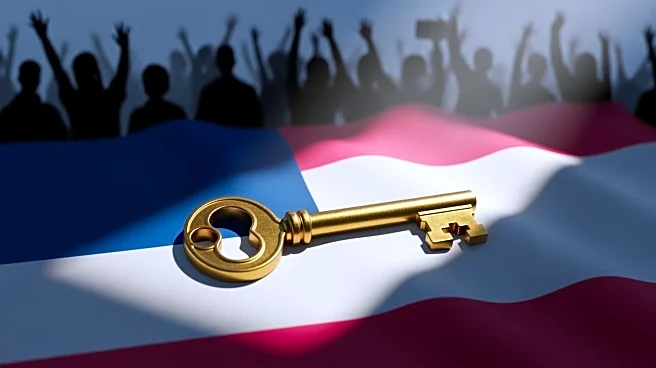What's Happening?
Thousands of individuals are preparing to participate in rallies across Israel, advocating under the slogan 'Bringing Back the Slain Hostages Will Save Lives.' These demonstrations aim to highlight the urgent need for action to rescue hostages and prevent
further loss of life. The movement seeks to amplify the voices of those affected by hostage situations, urging for swift and decisive measures to ensure the safe return of captives. The rallying cry underscores the critical connection between securing the release of hostages and safeguarding lives, resonating with a broad audience concerned about this pressing issue in Israel.
Why It's Important?
The rallies in Israel underscore a significant societal concern regarding the safety and rescue of hostages. This movement highlights the broader implications of hostage situations, which can affect national security, international relations, and public morale. The call for action reflects a collective demand for government and international intervention to address and resolve these crises. Successful advocacy and subsequent action could lead to improved policies and strategies for handling hostage situations, potentially saving lives and enhancing national security. The movement also serves as a reminder of the human cost of geopolitical conflicts and the need for humanitarian solutions.
What's Next?
As the rallies gain momentum, it is anticipated that political leaders and international organizations may respond to the public's call for action. Potential outcomes could include increased diplomatic efforts, policy changes, or international collaborations aimed at resolving hostage situations. The movement may also inspire similar advocacy efforts in other regions facing similar challenges, potentially leading to a broader global dialogue on hostage rescue and prevention strategies.
Beyond the Headlines
The rallies in Israel may also prompt discussions on the ethical and legal dimensions of hostage negotiations and rescues. Questions about the balance between negotiation and military intervention, the role of international law, and the responsibilities of governments to protect their citizens could arise. Additionally, the movement may influence cultural perceptions of conflict resolution and the value placed on human life in geopolitical contexts.


















